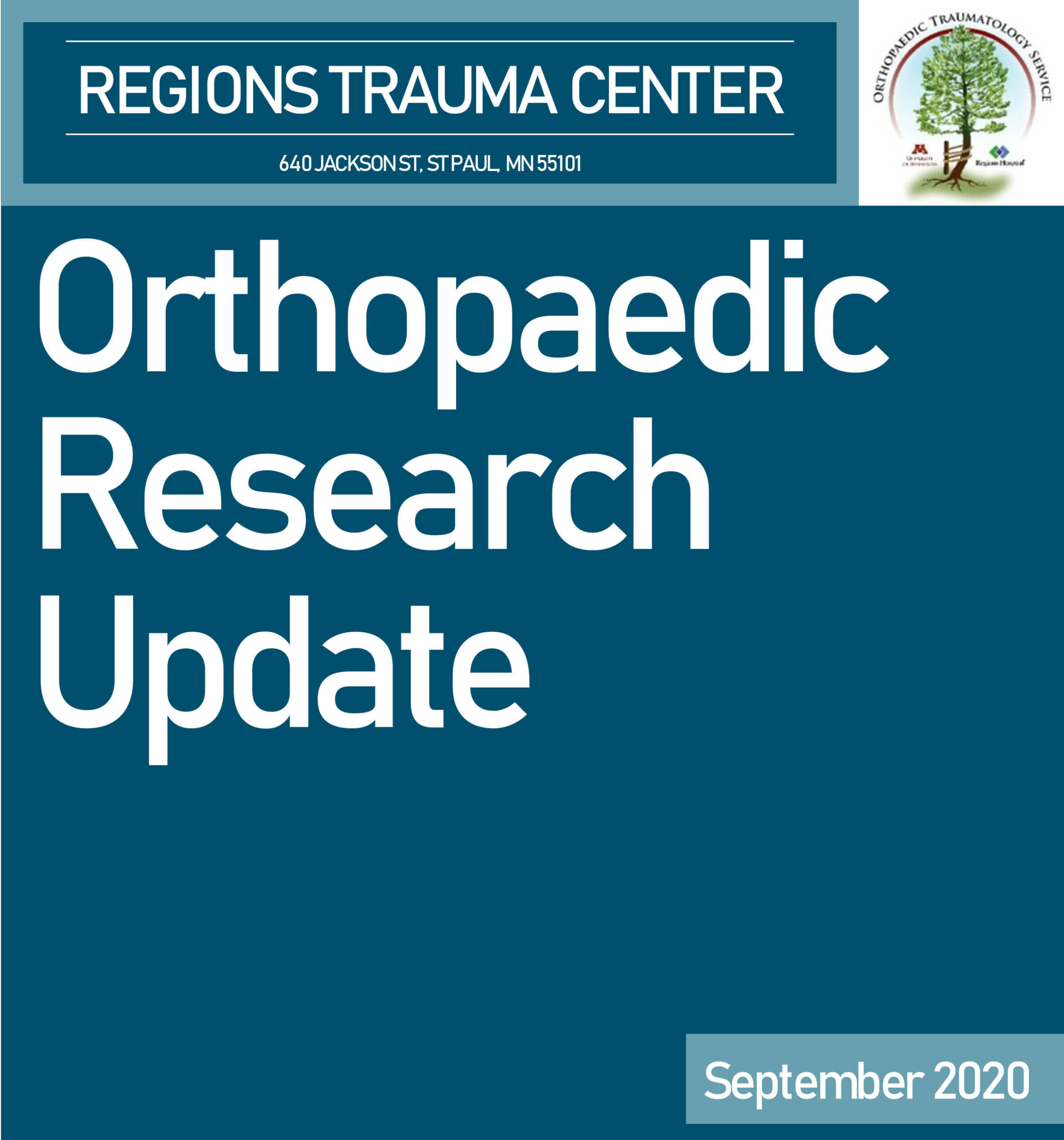Orthopaedic Research Update Sept 2020
We’re proud to share the September 2020 Orthopaedic Research Update from the Scapula Institute and our partners at the North Star Trauma Network. Despite the ongoing challenges of COVID-19, our orthopaedic trauma team has continued to advance research and patient care with determination and innovation.
This update highlights a wide range of activity across our research sites, including Regions, Lakeview, Methodist, and Abbott Northwestern Hospitals. From May through September 2020, the team contributed to numerous peer-reviewed publications spanning topics such as distal radius fractures, scapular reconstructions, opioid use post-surgery, geriatric hip fractures, and the clinical utility of 3D-printed protective equipment. Our researchers also explored healthcare cost trends and postoperative care protocols, with several findings submitted to the American Academy of Orthopaedic Surgeons for upcoming presentation.
Our PROMs (Patient-Reported Outcome Measures) program remains a critical part of patient-centered care, with new patients enrolled, assessments completed, and valuable feedback gathered to guide future treatment approaches. In total, multiple abstracts were submitted, and several collaborative studies were launched, including investigations into weight-bearing protocols, survey tools, and cost-analysis models for orthopaedic procedures.
Even during restricted in-person activity, our team successfully transitioned back to hospital-based data collection with strict safety measures. The return marked a significant milestone in continuing in-person research work.
These ongoing efforts reflect our commitment to both scientific discovery and real-world impact. We thank all physicians, staff, and patients involved in helping us deliver meaningful results that continue to shape orthopaedic trauma care both locally and nationally.
For a full list of publications, project data, and graphics from this update, download the complete September 2020 PDF available on our website.

